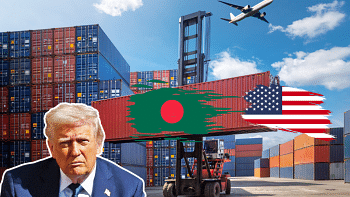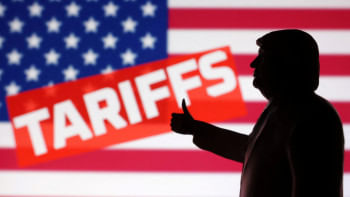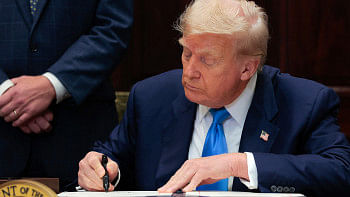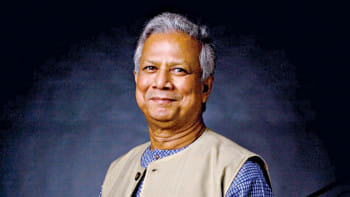US tariff hike ‘manageable’, Bangladesh remains competitive: BGMEA president

The Bangladesh Garment Manufacturers and Exporters Association (BGMEA) today issued a statement from its President Mahmud Hasan Khan after the US administration reduced the reciprocal tariff on Bangladesh's exports to 20 percent, 17 percentage points lower than its initial announcement.
Here is the full text of his views on the new tariff:
"For the past three months, we have been living with a kind of uncertainty over the reciprocal tariff. It is difficult to conduct business and trade in an environment of uncertainty. US buyers were also observing which way the situation would go. In the end, the reduction of the reciprocal tariff from 35 percent to 20 percent is a relief for us.
We have been saying from the very beginning that if the reciprocal tariff on our goods is higher than that of our competitors, it would become difficult to do business. However, while our reciprocal tariff is 1 percent higher than that of our rival Pakistan, it is 5 percent lower than India's and 10 percent lower than China's. This is a great relief for us.
Due to the increased reciprocal tariff, business may temporarily slow down. This is because US buyers will have to pay more duty on imports than before, which will put a strain on their capital. If they cannot arrange for additional financing in such a situation, they will place fewer orders. Furthermore, the additional tariff will ultimately be passed on to the buyers. If the price of goods increases due to the tariff, buyers will be under pressure, which could lead to a decrease in sales.
In April, the Trump administration initially imposed a minimum reciprocal tariff of 10 percent on goods from all countries. US buyers managed this in various ways. Under pressure from some buyer companies, our suppliers had to bear a share of that additional duty. I want to convey a message to our members that this extra tariff must be paid by the importing and buying companies. And in the end, it will fall on the US consumers. Therefore, this specific message must be clear.
The reciprocal tariff on China is currently 30 percent. The US president will soon announce the final reciprocal tariff rate for that country. However, from what we can gather, their tariff rate will not be lower than ours. As a result, the relocation of ready-made garment orders from China will continue, which will give us an opportunity to grow our business. In that case, issues such as a sufficient energy supply, increased capacity of Chittagong port, and political stability must be favourable.
Since we have only received the draft or a summary of the agreement so far and not the details, we hope that our trade delegation has completed the signing of the agreement while preserving the country's and our trade interests.
Another important issue is the proper implementation of the commitments and agreements Bangladesh has made during the reciprocal tariff discussions. These include short-term matters like purchasing wheat, cotton, and LNG, as well as long-term issues like buying planes. We must remember that any negligence here could put us in a difficult situation again."

 For all latest news, follow The Daily Star's Google News channel.
For all latest news, follow The Daily Star's Google News channel. 













Comments